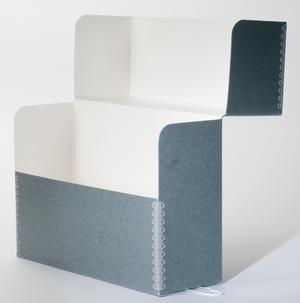- Contact Us
- Emergency Information
- Facility Rental
- Jobs
- Site Map
- Site Policies
- Web Accessibility
- Web Privacy
- © Harry Ransom Center 2025

SIGNATURES
Identified individuals are represented by a biographical sketch, a list of connections to other signatures, and, in most cases, an artifact from the Ransom Centers collections. Help us identify more signatures by submitting your suggested identification.
X
X
THE DOOR
 Location on door: front, panel 3
Location on door: front, panel 3
JOHN DOS PASSOS
Chicago-born John Dos Passos (1896-1970) was a major American novelist who came to prominence following the publication of his second novel, Three Soldiers, in 1921. Like E. E. Cummings, Ernest Hemingway, and Malcolm Cowley, Dos Passos volunteered as an ambulance driver during World War I. During the 1920s, he traveled extensively, including to Russia and Paris. He lived only intermittently in New York, splitting his time between Greenwich Village and Brooklyn Heights, whose quiet he found more conducive to writing. He was friendly with many Villagers and was caricatured alongside several other writers on an overture curtain for the 1922 Greenwich Village Follies. Dos Passos contributed regularly to the socialist little magazine New Masses. However, in the late thirties his politics became more conservative. As Malcolm Cowley would later explain, he was "a radical in the 1920s, when most of his friends were indifferent to politics, and...increasingly conservative in the following decade, when many of his friends were becoming radical."

The dust jacket of the first edition of John Dos Passos's Three Soldiers (New York: George H. Doran Company, 1921)
This novel of World War I was championed by figures ranging from H. L. Mencken to Heywood Broun. F. Scott Fitzgerald wrote that it was the "first war book by an American which is worthy of serious notice." However, such praise was not universal. A critic for the Independent and Weekly Review, perhaps responding to the novel's dust jacket prose, wrote, "If [Three Soldiers] has any general significance it is less the cry of Young America than the cry of Greenwich Village." An advertisement for a novel by fellow door signer Elisabeth Sanxay Holding appears on the front flap of the dust jacket.

